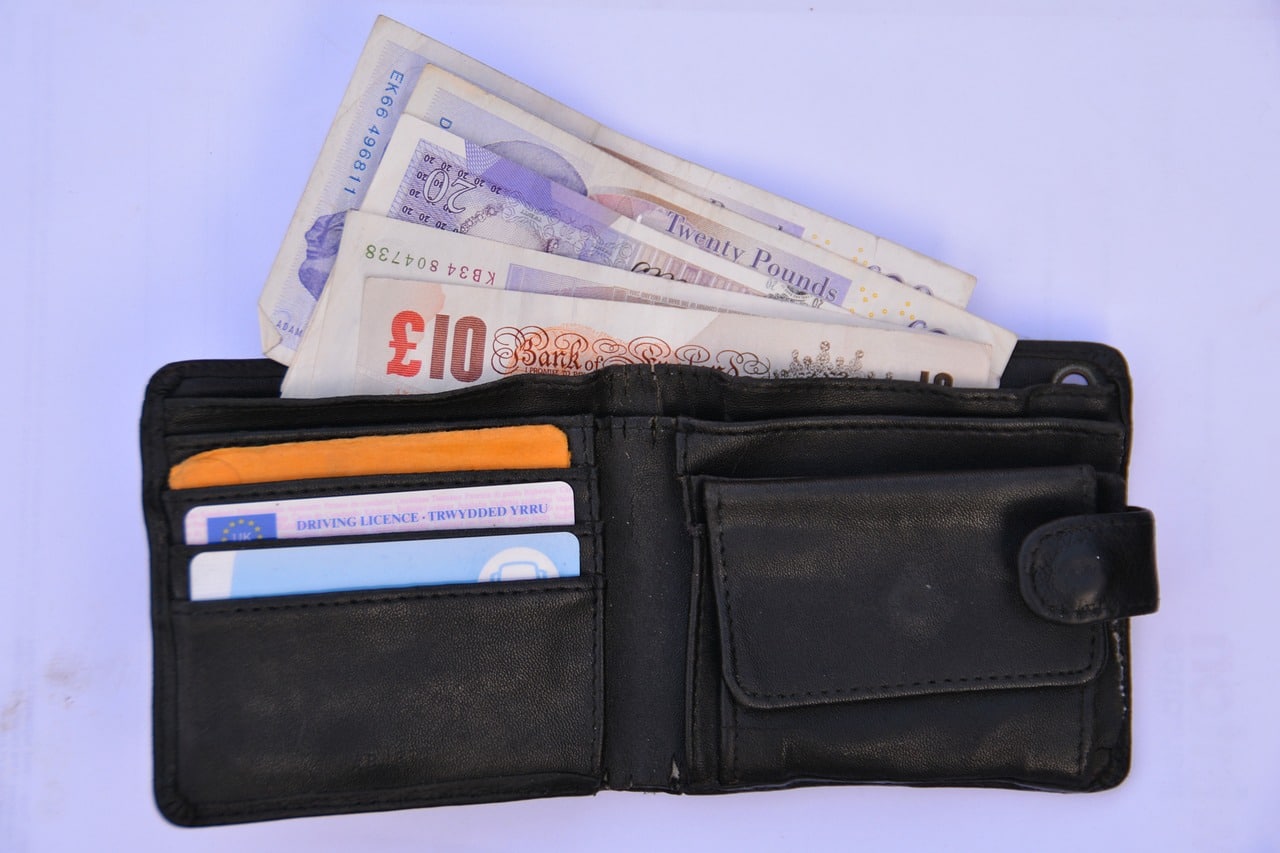Let's face it, managing our finances can sometimes feel like a daunting task. But fear not! Effective financial management starts with keeping track of bills and payments. Late payments can cost you more than just a few extra dollars - they can result in fees, increased interest rates, and even damage to your credit score. So, how can you ensure that your bills are always paid on time? Start by creating a list of recurring bills and their due dates. Then, use a calendar - whether it's digital or good old-fashioned paper - to set reminders for bill payments. Consider setting up automatic payments or autopay to take the stress out of remembering due dates. And don't forget to organize your bills, whether that means switching to digital versions, creating folders, or utilizing cloud storage apps. With a little organization and the right tools, you'll be well on your way to financial success. Speaking of tools, there are plenty of options out there to help you track bills and payments, such as spreadsheets, budgeting apps, transaction registers, and expense tracker sheets. And if you're looking for further guidance and inspiration, you can turn to Clever Girl Finance, a financial education platform dedicated to empowering women on their journey to financial success. So, go ahead and take charge of your finances - it's time to keep those bills in check and pave the way to a secure financial future.
Creating a List of Recurring Bills
Keeping track of bills and payments is essential for managing finances effectively. One way to stay organized is by creating a list of recurring bills. Identify all the bills you have to pay on a regular basis, such as monthly rent or mortgage payments, utility bills, and subscription services.
Once you have identified your recurring bills, it's important to list their due dates. This will make it easier to plan your budget and ensure that you don't miss any payments. Take note of when each bill is due and mark it down on your calendar or create a separate document specifically for bill due dates. Having a clear list of due dates will help you stay on track and avoid any late fees or penalties.
To make your list of recurring bills even more comprehensive, consider adding additional details. For each bill, include information such as the name of the biller, the account number, and the amount due. This will make it easier to reference and track your payments. By organizing your bills in this way, you can quickly see which bills have been paid and which ones still need to be paid. This not only saves you time but also helps you stay on top of your financial obligations.
By creating a list of recurring bills, listing their due dates, and adding bill details, you can effectively manage your finances and ensure that your bills are paid on time. This will help you avoid late payment fees, prevent increased interest rates, and maintain a positive credit score.
Using a Calendar for Bill Reminders
In addition to creating a list of recurring bills, utilizing a calendar system can be extremely helpful for keeping track of bill payments. There are several calendar options available, both digital and paper, so you can choose the one that works best for you.
If you prefer a digital calendar, many smartphones come with built-in calendar apps that allow you to schedule reminders for bill payments. You can input the due dates of your bills and set up notifications to alert you when a bill needs to be paid. This way, you will receive a reminder on your phone and can take immediate action to ensure the bill gets paid on time.
For those who prefer the traditional pen-and-paper method, a physical calendar can also be effective. You can write down the due dates of your bills on the calendar and place it in a location where you will see it frequently, such as on your refrigerator or next to your desk. This serves as a visual reminder of when your bills are due and can help you stay organized.
When using a calendar system, it's important to schedule bill reminders a few days in advance to give yourself enough time to make the necessary payments. This buffer period allows for any unexpected delays or issues that may arise. By scheduling bill reminders in advance, you can ensure that bills are paid on time and avoid any negative consequences associated with late payments.
Setting up notifications is also crucial when using a digital calendar for bill reminders. Most calendar apps allow you to customize notifications based on your preferences. You can choose to receive a notification an hour before the bill is due, a day before, or even a week before. Selecting the option that works best for you will help you effectively manage your bill payments and avoid any late fees or penalties.
Setting Up Automatic Payments
To further streamline your bill payment process and ensure that bills are always paid on time, consider setting up automatic payments or autopay. Automatic payments are a convenient option that allows you to authorize your billers to deduct the necessary amount from your bank account on the due date.
Automatic payments offer several benefits. First, they eliminate the need for manual bill payments, saving you time and effort. Instead of having to remember each bill's due date and make the payment yourself, the process is automated, and the payment is made automatically.
Second, automatic payments reduce the risk of missing a payment. With autopay, you don't have to worry about forgetting to pay a bill or being late due to human error. The payment is initiated on the due date, ensuring that the bill is paid promptly.
Before enrolling in autopay, it's important to understand how automatic payments work. Typically, you will need to provide your billing information, such as your bank account details or credit card information, to the biller. They will then charge your account on the specified due date.
It's also important to research your options and ensure that automatic payments are available for all of your bills. Some billers may not offer this option, or there may be certain restrictions or fees associated with using autopay. Take the time to review the terms and conditions of each biller to make an informed decision.
Once you have determined which bills can be set up for automatic payments, you can enroll in autopay. Follow the instructions provided by the biller to set up the automatic payment. Make sure to review your bank statements or credit card statements regularly to ensure that the payments are being processed correctly.
By utilizing automatic payments, you can simplify your bill payment process and minimize the risk of late payments. However, it's important to monitor your account and ensure that you have sufficient funds to cover the automatic payments. Additionally, if you ever need to make changes to the payment amount or schedule, make sure to notify the biller in advance.
Organizing Bills for Easy Tracking
To effectively keep track of your bills and payments, it's essential to have an organized system in place. By organizing your bills, you can easily locate them when needed and stay on top of your financial responsibilities. Here are some strategies for organizing your bills:

This image is property of pixabay.com.
Switching to digital bills
One way to simplify bill organization is by switching to digital bills. Many billers now offer the option of receiving electronic statements instead of paper ones. Digital bills are convenient because they can be accessed and stored electronically, eliminating the need for physical storage space.
To switch to digital bills, contact your billers and inquire about their electronic statement options. They will provide instructions on how to sign up for electronic statements and may require you to create an online account. Once you have enrolled in digital billing, you will receive your bills via email or through the biller's website.
Digital bills can be stored in folders on your computer or in cloud storage apps for easy access. This eliminates the need to keep physical copies of your bills and reduces clutter. However, it's important to back up your electronic bills regularly to ensure that you don't lose any important information in the event of a computer crash or data loss.
Creating bill folders
If you prefer to receive paper bills, creating bill folders can help keep them organized. Start by designating a specific location for bill storage, such as a filing cabinet or a drawer. Then, create individual folders for each bill with labels indicating the biller's name and due date.
When a paper bill arrives, place it in the corresponding folder immediately. By having a designated spot for bills, you can quickly locate them when needed. This prevents bills from getting misplaced or lost in the shuffle of other paperwork.
Regularly review the contents of your bill folders to ensure that all bills have been paid and any necessary actions have been taken. This includes reviewing bills for accuracy, checking for any discrepancies, and verifying that the amounts due match the payments made.
Utilizing cloud storage apps
Cloud storage apps can be a great tool for organizing your bills and keeping them easily accessible. These apps allow you to securely store your bills online, eliminating the need for physical storage space.
There are several cloud storage apps available, such as Google Drive, Dropbox, and OneDrive. These apps allow you to create folders for different bills and upload electronic copies of your bills into the respective folders. You can access your bills from any device with internet access, making it convenient to review and pay your bills wherever you are.
When utilizing cloud storage apps for bill organization, it's important to keep your account secure. Choose a strong password and enable two-factor authentication if available. This adds an extra layer of security and helps protect your sensitive financial information.
By switching to digital bills, creating bill folders, and utilizing cloud storage apps, you can easily organize your bills and streamline your bill payment process. This not only saves you time but also reduces the risk of losing important documents and helps you stay on top of your financial obligations.
Implementing a Paycheck Budget
Understanding how to effectively budget your paycheck can significantly impact your ability to manage bills and expenses. By implementing a paycheck budget, you can allocate funds for bills within each pay period and ensure that you have enough money to cover your financial obligations. Here's how to get started:

This image is property of pixabay.com.
Understanding paycheck budgeting
Paycheck budgeting involves dividing your paycheck into different categories to allocate funds for bills, expenses, and savings. This ensures that your income is distributed in a way that prioritizes your financial responsibilities and goals.
When creating a paycheck budget, it's important to consider both fixed and variable expenses. Fixed expenses refer to bills that remain the same each month, such as rent or mortgage payments, car payments, and insurance premiums. Variable expenses, on the other hand, fluctuate from month to month, such as groceries, entertainment, and discretionary spending.
Calculating bills and expenses
To implement a paycheck budget effectively, you need to calculate your bills and expenses accurately. Start by making a list of all your fixed expenses and their respective amounts. This includes bills such as rent or mortgage, utilities, internet, and insurance. Add up the total amount for your fixed expenses.
Next, consider your variable expenses. Look at your past spending patterns and estimate how much you typically spend on categories like groceries, transportation, entertainment, and personal care. Be realistic with your estimates and include any upcoming expenses or events that may require additional funds.
Add the estimated variable expenses to the total amount of your fixed expenses to get your total monthly expenses. This will give you an idea of how much money you need to allocate from each paycheck to cover your bills and expenses.
Allocating funds accordingly
Once you have calculated your bills and expenses, allocate funds from each paycheck to cover these expenses. Start by deducting your fixed expenses from your paycheck. This ensures that you set aside enough money to cover these essential costs.
Next, divide the remaining funds among your variable expenses. Assign a certain amount for groceries, transportation, entertainment, and other discretionary spending. Be mindful of your income and adjust your spending habits accordingly.
If you have any money left after allocating funds for bills and expenses, consider setting some aside for savings or an emergency fund. This will help you build financial security and provide a safety net for unexpected expenses or emergencies.
By implementing a paycheck budget, you can effectively plan for bills and expenses within each pay period. This helps ensure that you have enough money to cover your financial obligations and allows you to prioritize your spending based on your income and financial goals.
Utilizing Tools to Track Bills and Payments
Tracking bills and payments can be made easier with the help of various tools and apps. These tools provide a convenient way to monitor your finances, keep track of due dates, and analyze your spending. Here are some options to consider:

This image is property of pixabay.com.
Exploring spreadsheet options
Spreadsheets can be a powerful tool for tracking bills and payments. Programs like Microsoft Excel or Google Sheets allow you to create customized spreadsheets to record your bills, due dates, and payment history.
Start by creating a spreadsheet with columns for the biller's name, due date, amount due, and payment status. As bills arrive, update the spreadsheet accordingly. This allows you to have a visual representation of your bills and payments, making it easier to track and manage your finances.
Spreadsheets can also be used to calculate your overall budget and identify areas where you may be overspending. By inputting your income and expenses, you can see how much money you have left after bills and make adjustments as needed.
Choosing budgeting apps
Budgeting apps are another valuable tool for tracking bills and payments. There are numerous budgeting apps available, such as Mint, YNAB (You Need a Budget), and Personal Capital. These apps allow you to connect your bank accounts, credit cards, and bills, providing a comprehensive view of your financial picture.
Budgeting apps automatically categorize your expenses based on your spending habits, making it easy to see where your money is going. They also provide alerts and reminders for bill due dates, ensuring that you never miss a payment.
Some budgeting apps also offer features like goal tracking and financial planning tools. For example, you can set savings goals, track your progress, and receive recommendations on how to improve your financial health.
When choosing a budgeting app, consider factors such as ease of use, compatibility with your devices, and the features that are most important to you. Test out a few different apps to find the one that best suits your needs and helps you effectively track your bills and payments.
Effectively using transaction registers
Transaction registers are a simple yet effective tool for tracking bills and payments. A transaction register is a document or app that allows you to record all your financial transactions in one place.
Start by creating a transaction register that includes columns for the date of the transaction, the payee or biller, the amount, and the payment status. As bills arrive and payments are made, update the register accordingly. This provides a clear record of your financial activity and helps you stay organized.
Transaction registers can be as simple as a notebook or a dedicated app on your smartphone. Choose a format that works best for you and make it a habit to record your transactions regularly. This will ensure that you have an accurate record of your bills and payments and can easily track your financial progress.

Utilizing expense tracker sheets
Expense tracker sheets are another useful tool for tracking bills and payments. These sheets allow you to record your expenses and monitor your spending on a regular basis.
Start by creating an expense tracker sheet that includes categories for different types of expenses, such as food, transportation, utilities, and entertainment. As you make purchases and pay bills, record them in the appropriate category. This will give you a clear picture of where your money is going and help you identify areas where you may need to cut back.
Expense tracker sheets can be created using a spreadsheet program or by using pre-designed templates available online. Choose a format that is easy to use and customize to fit your specific needs.
By utilizing tools like spreadsheets, budgeting apps, transaction registers, and expense tracker sheets, you can effectively track your bills and payments. These tools provide a comprehensive view of your finances and help you stay organized, allowing you to make informed decisions about your spending and saving habits.
Tracking Bills and Payments at Key Times
Tracking bills and payments is an ongoing process that requires regular attention and monitoring. By keeping track of your expenses at key times, you can stay on top of your financial obligations and make strategic decisions to better manage your finances. Here are some key times to track your bills and payments:
Keeping track of expenses
Throughout the month, it's important to keep track of your expenses as they occur. This includes recording all your purchases, bill payments, and any other financial transactions. By doing so, you can monitor your spending habits and ensure that you are staying within your budget.
To effectively keep track of your expenses, consider using a transaction register or a budgeting app. These tools allow you to record your transactions in real-time and provide a clear overview of your spending. By reviewing your expenses regularly, you can identify any areas where you may be overspending and make adjustments accordingly.
It's also important to review your bills as they arrive. Check for any discrepancies or errors and contact the biller immediately if you notice any issues. By addressing problems promptly, you can avoid any potential late fees or penalties.
Reviewing payments at the end of the day
At the end of each day, take a few minutes to review your payments and ensure that all bills have been paid. This serves as a final check to ensure that nothing has been overlooked or missed.
Review your transaction register or budgeting app and verify that all bill payments have been recorded accurately. If any payments are pending or scheduled for a future date, make note of them and ensure that you have sufficient funds to cover the payments.
This daily practice allows you to stay organized and stay on top of your bill payment schedule. It provides peace of mind knowing that you have taken care of your financial obligations for the day and can start fresh the next day.

Conducting weekly budgeting sessions
In addition to tracking bills and payments on a daily basis, conducting weekly budgeting sessions can provide a more comprehensive overview of your financial situation. Set aside a specific time each week to review your bills, expenses, and overall budget.
During these sessions, analyze your spending patterns and identify any areas where you may need to adjust. Look for opportunities to cut back on unnecessary expenses and find ways to save money.
Review your bill due dates and ensure that you have scheduled payments for all upcoming bills. This helps you stay organized and ensures that you don't miss any payments.
By conducting weekly budgeting sessions, you can stay proactive with your finances and make adjustments as needed. This helps you stay on track with your bill payments and maintain control over your financial situation.
The Importance of Keeping Track of Bills and Payments
Keeping track of bills and payments is essential for effective financial management. Failure to do so can result in late payment fees, increased interest rates, and a negative impact on your credit score. Here's why keeping track of bills and payments is so important:
Avoiding late payment fees
Late payment fees can quickly add up and significantly impact your finances. Many billers charge a fee if payment is not received by the due date. These fees can range from a few dollars to a substantial percentage of the bill amount.
By keeping track of your bill due dates and ensuring that payments are made on time, you can avoid these unnecessary fees. Late payment fees are easily avoidable with proper organization and planning.
Preventing increased interest
In addition to late payment fees, failing to make timely bill payments can result in increased interest on certain bills. For example, credit card companies often charge high interest rates on unpaid balances or late payments.
By staying on top of your bill payments, you can avoid these increased interest charges and save yourself money in the long run. Making timely payments not only helps you avoid unnecessary costs but also demonstrates responsible financial behavior.
Maintaining a positive credit score
Tracking bills and payments is crucial for maintaining a positive credit score. Your credit score reflects your borrowing and payment history and is used by lenders, landlords, and other financial institutions to assess your creditworthiness.
Late or missed payments can have a negative impact on your credit score. By maintaining a record of your bill payments and ensuring that they are made on time, you can protect and improve your credit score.
A good credit score is essential for obtaining favorable interest rates on loans, securing rental properties, and even finding employment in some cases. By keeping track of your bills and payments, you can maintain a positive credit history and open up opportunities for future financial success.
In conclusion, keeping track of bills and payments is essential for effective financial management. By creating a list of recurring bills, using a calendar for reminders, setting up automatic payments, organizing bills, implementing a paycheck budget, utilizing tracking tools, and monitoring your finances at key times, you can stay on top of your bills and payments. This not only helps you avoid late payment fees, prevent increased interest rates, and maintain a positive credit score, but it also provides peace of mind and empowers you to take control of your financial future.
Applying Effective Financial Management Principles
Effective financial management is key to achieving long-term financial success. By applying effective financial management principles, you can gain control over your finances, reduce stress, and work towards your financial goals. Here are some benefits of effective financial management and how to apply them to your life:
Benefits of effective financial management
Effective financial management offers numerous benefits that contribute to your overall financial well-being. Some of the key benefits include:
-
Greater financial control: With effective financial management, you have a clear understanding of your income, expenses, and financial goals. This allows you to make informed decisions and have greater control over your financial future.
-
Reduced stress: Financial stress is a common issue for many people. However, effective financial management helps alleviate stress by providing a structured approach to handling money. By knowing where your money is going and having a plan in place, you can minimize financial worries and focus on other aspects of your life.
-
Improved financial stability: Effective financial management helps you build a strong foundation for your finances. By budgeting, tracking expenses, and saving, you can create a safety net for emergencies and unexpected expenses, leading to greater financial stability.
-
Increased financial flexibility: Effective financial management allows you to allocate funds based on your priorities and goals. This flexibility enables you to invest in opportunities, save for larger purchases, and plan for future financial needs.
Creating a financial management plan
To apply effective financial management principles, start by creating a financial management plan. This plan should outline your financial goals, budgeting strategies, and saving strategies.
Start by identifying your short-term and long-term financial goals. These goals can include paying off debt, saving for retirement, purchasing a home, or starting a business. Prioritize your goals and break them down into actionable steps.
Next, create a budget that reflects your income, expenses, and financial goals. This involves tracking your income and categorizing your expenses. Identify areas where you can cut back on spending and allocate those savings towards your financial goals.
Remember to also include saving strategies in your financial management plan. Set aside a portion of your income for savings, emergency funds, and investments. Automate your savings by setting up automatic transfers to separate accounts.
Monitoring and adjusting financial strategies
Applying effective financial management principles requires continuous monitoring and adjustments. Regularly review your budget and actual expenses to ensure that you are staying on track with your financial goals.
Monitor your progress towards your financial goals and make adjustments as necessary. If you notice that you are not making sufficient progress, identify areas where you can cut back on spending or increase your income.
Stay informed about changes in your financial situation, such as changes in income, expenses, or interest rates. Adjust your financial strategies accordingly to align with these changes.
By continuously monitoring and adjusting your financial strategies, you can ensure that your financial management plan remains effective and aligned with your goals. This proactive approach allows you to adapt to changes and maintain control over your finances.
In conclusion, applying effective financial management principles is crucial for achieving financial success. By creating a financial management plan, monitoring and adjusting your strategies, and prioritizing your goals, you can take control of your finances and work towards a more secure and prosperous future.
The Role of Clever Girl Finance
Clever Girl Finance is a financial education platform that specializes in empowering women to achieve financial success. The platform provides resources, tools, and a supportive community that empowers women to take control of their finances and build wealth. Here is an overview of Clever Girl Finance and the resources it offers:
Overview of Clever Girl Finance
Clever Girl Finance was founded in 2015 by financial expert and author, Bola Sokunbi. The platform was created with the vision of providing accessible financial education and resources specifically tailored to women.
Clever Girl Finance offers a wide range of resources, including articles, courses, webinars, and podcasts. These resources cover various aspects of personal finance, such as budgeting, saving, investing, and building credit. The platform also addresses unique financial challenges that women may face, such as the gender pay gap and balancing career and family.
The mission of Clever Girl Finance is to empower women with the knowledge and tools to make informed financial decisions and achieve financial independence. Through its educational resources and supportive community, Clever Girl Finance aims to break down barriers and create a space where women can thrive financially.
Empowering women in financial success
Clever Girl Finance is dedicated to empowering women to take control of their financial lives and achieve their goals. The platform recognizes that women often face unique challenges when it comes to money and aims to provide the knowledge and support needed to overcome these obstacles.
Clever Girl Finance focuses on educating women about personal finance topics such as budgeting, debt management, investing, and entrepreneurship. By providing practical guidance and actionable strategies, Clever Girl Finance helps women build the confidence and skills necessary to make informed financial decisions and take control of their financial future.
The platform also emphasizes the importance of mindset and self-belief in achieving financial success. Clever Girl Finance encourages women to redefine their relationship with money, challenge limiting beliefs about wealth, and adopt a positive and empowered mindset.
Resources offered by Clever Girl Finance
Clever Girl Finance offers a wide range of resources to support women in their financial journeys. These resources are designed to provide practical advice, inspiration, and guidance on various personal finance topics. Some of the resources offered by Clever Girl Finance include:
-
Articles: Clever Girl Finance publishes articles on a variety of personal finance topics. These articles provide in-depth information, practical tips, and real-life examples to help women navigate their financial journeys.
-
Courses: Clever Girl Finance offers online courses that cover key financial topics such as budgeting, saving, investing, and entrepreneurship. These courses provide step-by-step guidance and actionable strategies to help women achieve their financial goals.
-
Webinars: Clever Girl Finance hosts webinars featuring industry experts who provide insights and advice on specific financial topics. These webinars offer an interactive learning experience and allow participants to ask questions and engage with the speakers.
-
Podcast: Clever Girl Finance hosts a popular podcast where Bola Sokunbi interviews inspiring women who have achieved financial success. The podcast provides real-life stories and practical advice to motivate and educate listeners.
-
Community: Clever Girl Finance has a supportive community of like-minded women who share their experiences, challenges, and successes. The community provides a safe space for women to ask questions, seek advice, and find encouragement from others on their financial journeys.
By utilizing the resources provided by Clever Girl Finance, women can gain the knowledge, skills, and support needed to achieve financial success and build wealth. The platform empowers women to take control of their finances, break barriers, and create a better financial future for themselves and their families.

